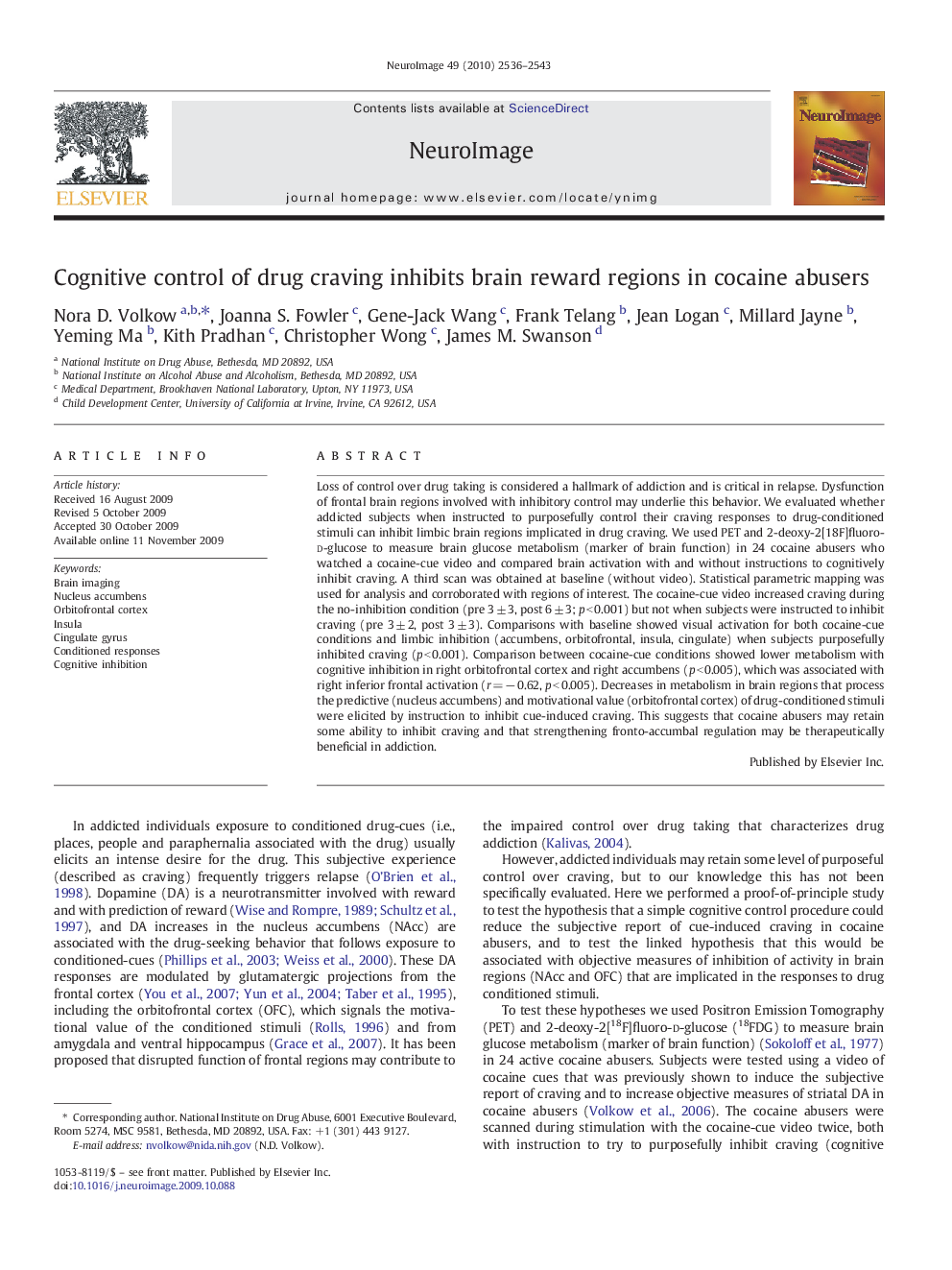| کد مقاله | کد نشریه | سال انتشار | مقاله انگلیسی | نسخه تمام متن |
|---|---|---|---|---|
| 6037098 | 1188783 | 2010 | 8 صفحه PDF | دانلود رایگان |

Loss of control over drug taking is considered a hallmark of addiction and is critical in relapse. Dysfunction of frontal brain regions involved with inhibitory control may underlie this behavior. We evaluated whether addicted subjects when instructed to purposefully control their craving responses to drug-conditioned stimuli can inhibit limbic brain regions implicated in drug craving. We used PET and 2-deoxy-2[18F]fluoro-d-glucose to measure brain glucose metabolism (marker of brain function) in 24 cocaine abusers who watched a cocaine-cue video and compared brain activation with and without instructions to cognitively inhibit craving. A third scan was obtained at baseline (without video). Statistical parametric mapping was used for analysis and corroborated with regions of interest. The cocaine-cue video increased craving during the no-inhibition condition (pre 3 ± 3, post 6 ± 3; p < 0.001) but not when subjects were instructed to inhibit craving (pre 3 ± 2, post 3 ± 3). Comparisons with baseline showed visual activation for both cocaine-cue conditions and limbic inhibition (accumbens, orbitofrontal, insula, cingulate) when subjects purposefully inhibited craving (p < 0.001). Comparison between cocaine-cue conditions showed lower metabolism with cognitive inhibition in right orbitofrontal cortex and right accumbens (p < 0.005), which was associated with right inferior frontal activation (r = â 0.62, p < 0.005). Decreases in metabolism in brain regions that process the predictive (nucleus accumbens) and motivational value (orbitofrontal cortex) of drug-conditioned stimuli were elicited by instruction to inhibit cue-induced craving. This suggests that cocaine abusers may retain some ability to inhibit craving and that strengthening fronto-accumbal regulation may be therapeutically beneficial in addiction.
Journal: NeuroImage - Volume 49, Issue 3, 1 February 2010, Pages 2536-2543